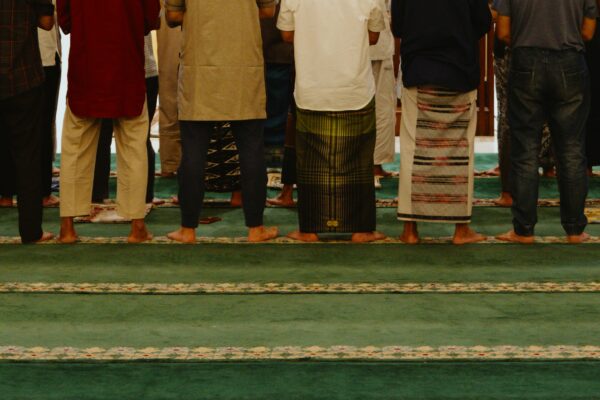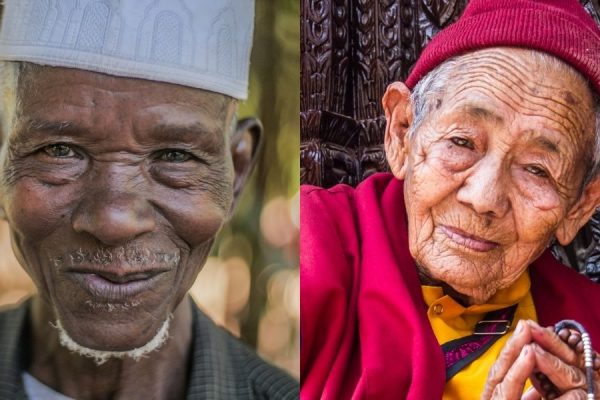The Muslim community inherently understands adversity- we have faced persecution because of our beliefs for centuries. Despite this, the Muslim community inherits a rich history of culture, community growth, wisdom, and knowledge. Given the global rise of Islamophobia, rise of Daesh, and continued persecutions, unity as a community should be our strength; however, the problematic attitude of our leaders in our mosques and disengagement with the youth are among the problems that sway us away from achieving a stronger community.
As ‘Houses of God’, mosques are places where Muslims congregate to worship and praise our Lord; concurrently, they are platforms for all to gain Islamic knowledge and serve the community- whether it is through helping the less fortunate or raising awareness against injustices and problems. However, because of “Mosque Politics” and increased disagreements between community leaders, mosques have become houses of dissension and weak brotherhood. There are well defined and alarming hierarchies present within our communities. Most mosques have a committee of leaders who stay in charge, make decisions, and run daily programs. However, decisions are usually made without the approval of the entire community, eliminating the sense of community as a whole. Additionally, this system mainly centralizes power in the hands of men, who further silence women. Misogyny and cultural practices are abused to further subjugate women (i.e. solely holding her responsible for the cooking and cleaning at mosques).
Furthermore, consolidating power creates egos, leading to a bigger divide. Because of conflicting ideas, egos create dissonance among people that leads to an inability to reach a consensus, resulting in the creation of “rival mosques”- mosques that are built out of spite towards one another. Islam stresses the importance of akhlaq, or the practice of ethics, proper etiquette, mannerly communication, and morality. Practicing such behavior establishes respect, promotes friendship, and encourages free thought. In his last will to his sons, Ali ibn Abi Talib said, “Maintain communication and exchange of opinion among yourselves. Beware of disunity and enmity.” As followers of the Holy Prophet(s), akhlaq is a cornerstone in Islamic ideology that we should all aspire to follow. In religious programs, we learn about the high morals of the Holy Household (a); but, how often do we emulate them? To eliminate communication issues, there needs to be equal representation of all groups in our mosques. Perhaps we can hold monthly community meetings that serve as platforms to respectfully express concerns. This way, it encourages member involvement and finds ways to defeat community problems.
Many mosques are run by first generation Muslims who have adopted an authoritarian management style; sadly, this has led to a chasm between the youth and elders, resulting in youth disengagement. What community leaders fail to realize is that as time progresses, mosques must evolve and be adaptable to the needs of the time. Because of the environment young Muslims are brought up in, often very different from the time of their parents, they turn to mosques to develop a Muslim identity, for religious and spiritual growth, a center for learning, interfaith activities, and wanting to be more active in their society. Additionally, because the youth are the future leaders of the community, mosques are in need of a healthy dialogue between elders and the youth. Youth leadership at mosques is crucial for a bright future- the youth need to make time and effort to participate in the growth of their communities. In some cases, however, the main reasons for the lack of youth involvement are: inflexible attitude of leaders, lack of extra- curricular activities, and failure to understand what is being taught because of language barriers. To overcome these setbacks, some mosques invite English-speaking lecturers, hold round table discussions about various topics, and conduct sports tournaments to promote healthy competition. Such flexibility should be promoted in all mosques because it engages the youth and helps them connect with elders.
“United we stand, divided we fall” is an expression used to inspire unity and collaboration. Its core concept lies in the collectivist notion that if individuals work together as a team, they, as a group, can succeed and achieve more. In an era where Islam and Muslims are attacked continuously, implementing unity within our own societies creates strength, excellent communication, and tolerance which can be accomplished through the joint efforts of community members. Eliminating hierarchies, providing equal representation, and building stronger relationships between the youth and elderly are all ways to foster unity and advance community development. It is time to confront problems that act as obstacles in achieving unity as a community because as He said, “… hold fast on to His rope all together, and do not be divided among yourselves…” (3:103)





